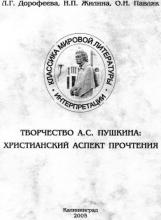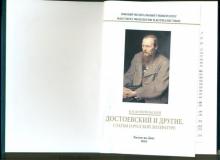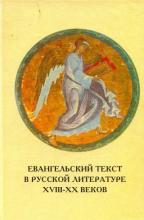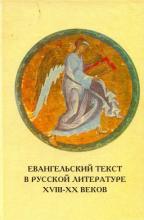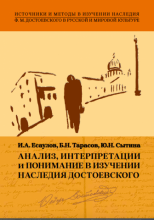Vladimir Zakharov
There is quite a number of misunderstandings in the written history of Russian literature, and the greatest of them is the incomprehension of its spiritual essence. Important: Russian literature was Christian. The word ‘literature’ itself is the least appropriate in this case. Latin – ‘litera’, Greek – ‘gramma’ (in Russian translation ‘letter’ – ‘bukva’). Different words were derived from these roots: literature, grammar, bukvar’ (ABC book). It would be more precise to call Slavic and then Russian writings with another word. Not ‘litera’ (literature), not book (‘knizhnost’), but ‘word’ (‘slovo’), the capitalized ‘Word’, the Word of Christ. During the last ten centuries we rather had Christian ‘slovesnost’’and not literature. Russian literature was not only Christian, but also Orthodox. The attention is paid even less to this fact. A special scientific discipline is required: ethnopoetics, which would study national peculiarities of different literatures, their place in the international literary process. This discipline should give the answer to what makes a certain literature national, in our case – what makes Russian literature to be Russian. In order to understand what Russian poets and prosaists were telling their readers, it is necessary to know Orthodoxy. Orthodox ecclesiastical live was a natural way of everyday life for a Russian man and characters in literature. Russian writers were not giving their characters accidental names - those were symbolic and Christian names and surnames. The action in many literary works develops according to the Julian calendar, which has a particular artistic meaning. The purely Orthodox celebrations – the Transfiguration and the Triumph of the Holy Cross – are especially important. The idea of transfiguration, suffering, redemption and salvation became the characteristic ideas of the Russian spiritual mentality, which is necessary to remember when studying Russian literature.
